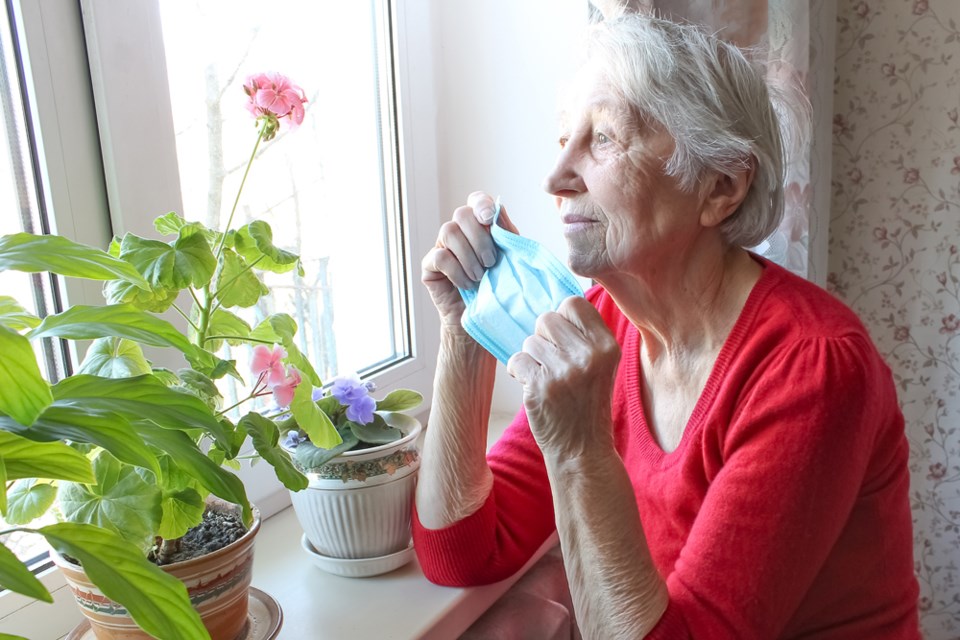With the pandemic, stress levels and family dynamics have changed.
This combination is leading some to report an increase in senior abuse.
"On a usual day, one in five older Canadians are subject to elder abuse. We are seeing a tenfold increase in elder abuse across the community," said CEO of CanAge Laura Tamblyn-Watts in an interview with CTV News in April.
To find out more about this, The Chief caught up with Gloria Margaret Gutman, a gerontologist, former professor, author, and researcher with Simon Fraser University.
What follows is an edited version of that conversation.
Q: Can you define for us what elder abuse is?
A: There are five main types of elder maltreatment — which is the more generic term. There's sexual abuse; physical abuse; psychological abuse, financial abuse and neglect.
The distinguishing characteristic of elder abuse, as opposed to garden variety discrimination, is abuse is when there is a power difference. Where there is an expectation of trust. That is the difference. You don't expect your kids to be mean to you, neglect you, or rip you off, for example.
There is also institutional abuse that takes place in a senior's housing or assisted living, a hospital and the like.
Q: How has the pandemic impacted this maltreatment?
A: What most people don't realize is that in virtually every disaster, seniors are the people who have the highest mortality rates. Whether it is a flood, earthquake, or famine, the fact is, it is not babies and nursing mothers who are the most at risk, as many may think. It tends to be older adults who are most at risk.
Elder abuse cuts across all segments of society. It doesn't matter if you are rich or poor, black or white.
If you have an earthquake and you are an isolated senior, it is going to be harder for you to get out and go to safety, for example.
Imagine in a developing country that is in distress and they are giving out bags of rice. Who is going to get those bags of rice? It isn't going to be a frail older lady.
In Canada, during the ice storms, some seniors in highrise apartments with no power could not make it down 20 flights of stairs.
The fact is, in disasters, seniors are the hardest hit.
The risk factors vary by type of abuse.
A person who is living alone is less likely to be the victim of physical abuse, but at the same time, they are at increased risk for financial abuse or abuse from a stranger — someone who comes into their house to provide services.
If they are living with others and there was an issue before the pandemic, it is going to be exacerbated during it.
With financial abuse, the stats are that there are more older people helping their younger relatives than the other way around.
So, imagine if someone is laid off and they were sponging off their parents before — it is going to be that much more pressure that will be put on the parent.
And imagine if before, you were able to go out and get your own groceries, for example, and now you are dependent on your child who was ripping you off.
Also, scammers and fraudsters are out in full force.
Q: If you are a senior reading this and some of it is ringing true, what is your advice for them?
A: Check sources of anyone volunteering to help you.
For example, if they claim to be from an agency, check on their credentials before accepting help. For sure, don't give out credit card numbers over the phone or at the door for any offers.
Anything that sounds too good, double-check.
Q: What about cases where you are experiencing physical or sexual abuse inside your home?
A: There is help. Contact SAIL – Seniors Abuse and Information Line.
The main point is that within the health authorities in B.C. there is someone designated to address elder abuse issues. [Vancouver Coastal Health and Providence Health Care: Call 1 (877) REACT-99 (1-877-732-2899) or (604) 904-6173 or email [email protected]a.]
Q: Is this all a reflection of our ageism?
A: Yes. Think of the rationing of health care. Say, putting in a cut off age [to access a ventilator, for example]. Some young people are old in the way they behave and some old people are quite youthful. So the functional status of the person should be taken into consideration: are they in good health or poor health?
Do they have pre-existing conditions?
There has been lots of talk about the age wave of Boomers and if they were going to sink the health care system. Obviously, we need reform in the long-term care system. What this pandemic has done is to highlight the fault lines in the system.
Q: What should you do if you suspect your neighbour is being mistreated, by say a son who lives with him or her?
A: As a bystander, you have a moral responsibility to report it to someone. The thing to do would be to get in touch with SAIL or the health authority representative.
Tread carefully, in terms of interpersonal interactions.
If it is possible to safely inform your neighbour of how to get help, do that. But make sure it is not making the situation worse.
It is better to seek the help of a professional to intervene.
When we suspect child abuse, it is our responsibility to report it, the same with domestic or elder abuse.



